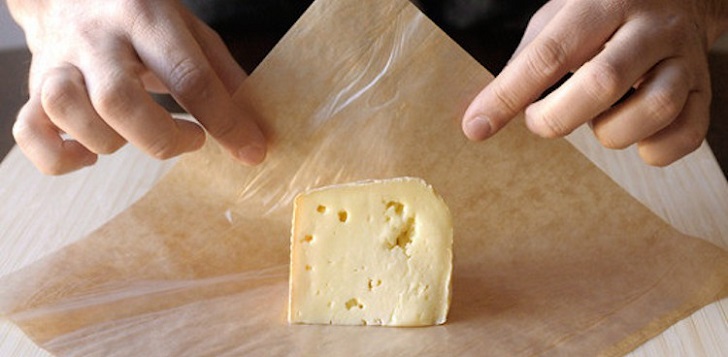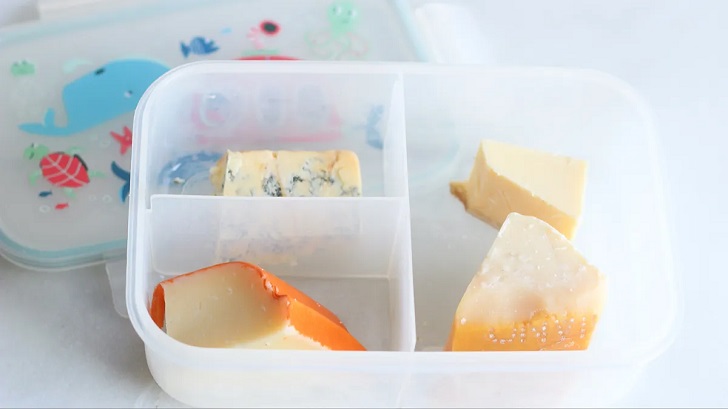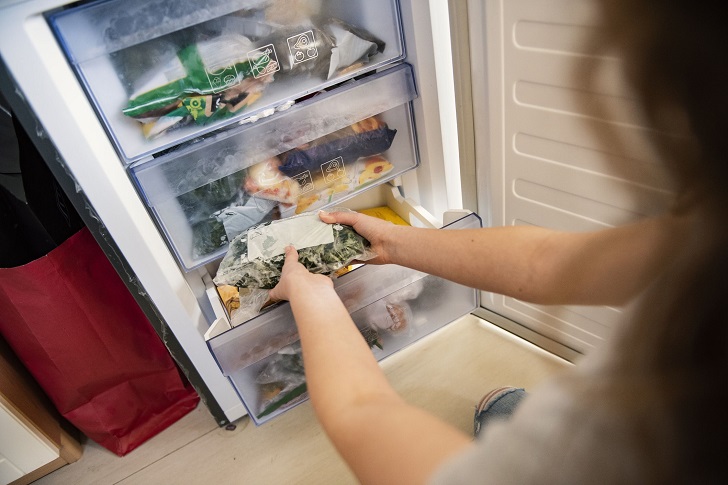Cheese is a beloved culinary delight enjoyed by people around the world. Cheese comes in various flavors and textures that cater to different tastes, whether it's a creamy Brie, a tangy Cheddar, or a pungent Gorgonzola.
However, to fully savor the rich and diverse cheese profiles, it's essential to store it properly. Proper cheese storage maintains its freshness and flavor and prevents spoilage and waste. This article will explore tips for storing cheese properly to ensure you enjoy every last bite.
Temperature Matters
One of the most critical factors in cheese storage is temperature. Cheese is best stored at a slightly cool temperature, ideally between 35°F to 45°F (1.7°C to 7.2°C). The refrigerator is ideal for storing most cheeses, except for soft cheeses like Brie or Camembert.
These types of cheese should be kept in the refrigerator's cheese drawer or a separate airtight container. Avoid storing cheese in the refrigerator door, as temperature fluctuations affect its quality.

Ricardo Huijon/ Culture | DO NOT store your cheese in plastic wrap
Keep It Wrapped
Proper wrapping is essential to maintain the quality of your cheese. Avoid using plastic wrap directly on the cheese; it can suffocate and promote mold growth. Instead, use wax paper or parchment paper to wrap individual pieces of cheese loosely. For long-term storage, consider investing in cheese paper or bags designed to regulate moisture and air circulation while keeping the cheese fresh.
Separate Strong Smells
Cheeses have the remarkable ability to absorb odors from their surroundings. To prevent your cheese from taking on unwanted flavors, store each type separately or, at the very least, in airtight containers. This practice is especially crucial when storing strong-smelling cheeses like blue cheese, which can overpower other milder varieties.
Embrace Breathable Containers
While airtight containers are useful for some types of cheese, many varieties benefit from breathable containers that allow proper air circulation. Cheese needs a small amount of air to prevent moisture buildup, which can lead to mold growth. Consider using cheese-specific containers with small holes or cheese paper, which balance moisture retention and air circulation.

Claire Lower/ Life Hacker | Cheese storage is one of those confounding subjects.
Use Cheese Vault
Investing in a cheese vault may be worth considering if you're a cheese enthusiast. A cheese vault is designed to store and preserve cheese optimally. It regulates humidity levels, allows air circulation, and prevents odors from seeping into the cheese. Some cheese vaults even come with removable trays, making organizing different types of cheese easier.
Avoid Freezing Cheese
While freezing can prolong the shelf life of many foods, it's not the best approach for cheese. Freezing can alter the cheese's texture and cause it to become crumbly or grainy once thawed. The exception to this rule is cheese intended for cooking, like shredded cheese. If you must freeze cheese, ensure it's in an airtight container, and use it for cooking.
Let It Breathe Before Serving
Before serving cheese, allow it to breathe at room temperature for about 30 minutes to an hour. This step allows the cheese's flavors and aromas to develop, fully providing a more enjoyable tasting experience. If the cheese has been stored in the refrigerator, the temperature change helps reveal the cheese's true character.

VITRANC/ GETTY IMAGES | Frozen cheese can be kept in the freezer for up to 3 months.
Don't Cut the Cheese Too Early
Resist the temptation to cut the entire block of cheese at once, especially if you're not planning to consume it immediately. Cut only what you need and re-wrap the remaining portion properly before returning it to storage. This practice helps to maintain the cheese's freshness and prevents it from drying out or developing a crust.
Consume Fresh Cheeses Promptly
Fresh cheeses, like mozzarella or goat cheese, have a shorter shelf life than aged varieties. Try to consume fresh cheeses within a few days of purchase to enjoy them at their best. If you have leftover fresh cheese, use it in various dishes like salads, pasta, or sandwiches to avoid wasting it.
Trust Your Senses
Ultimately, when it comes to cheese storage, trust your senses. If your cheese looks moldy, smells off, or has an unusual texture, it's best to discard it. Cheese is a living product that evolves with time, and while some molds are normal and even desirable in certain types of cheese, any signs of spoilage should be taken seriously.








